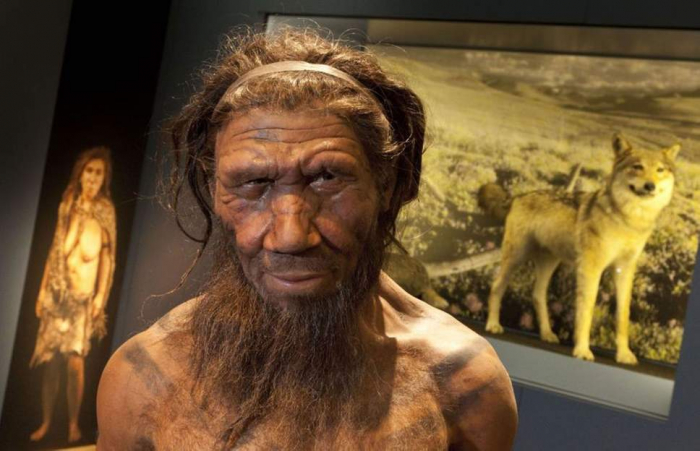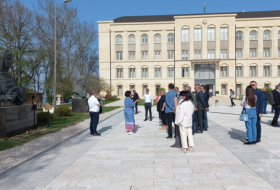Over the years, reconstructions of ancient humans have varied enormously, with the gradual ascent from hunched creatures to modern people still seen as the classic depiction of human evolution.
But the idea of Neanderthals as straight-backed fits with a wider image that is developing of our prehistoric ancestors as sophisticated contemporaries rather than knuckle-dragging dimwits.
“At the beginning of the 20th century it was thought Neanderthals were more ape-like in posture, but the more recent reconstructions go in the direction of a very straight, upright spine,” Dr Martin Haeusler from the University of Zurich told The Independent.
Despite the persistence of the ape-like stereotype, a recent study concluded these ancient creatures actually had straighter spines than modern humans.
However, new work undertaken by Dr Haeusler, based on a well-known skeleton unearthed at La Chapelle-aux-Saints in France, found the curves of its ancient spine closely matched those of modern humans.
This made sense to him, as the rigid posture previously suggested would be troubling in people alive today, and would lead to a lot of back pain.
Neanderthals still had some physical difference compared to modern humans, including shorter legs and stockier bodies.
However, they were similar enough to breed with our ancestors, something that is clear from the roughly 4 per cent of their genetic material non-African people have inherited from Neanderthals.
According to Dr Haeusler, his latest work adds to a growing body of evidence showing that in everything from anatomy to culture, these ancient humans were our equals.
“Our studies cannot show how they behaved, but there are now a lot of other lines of evidence that show Neanderthals were also capable of doing art, religion and so on,” said Dr Haeusler.
“Our study supports the idea that Neanderthals were not so different from us.”
The new results were published in the journal Proceedings of the National Academy of Sciences.
The Independent
More about: Neanderthals
















































